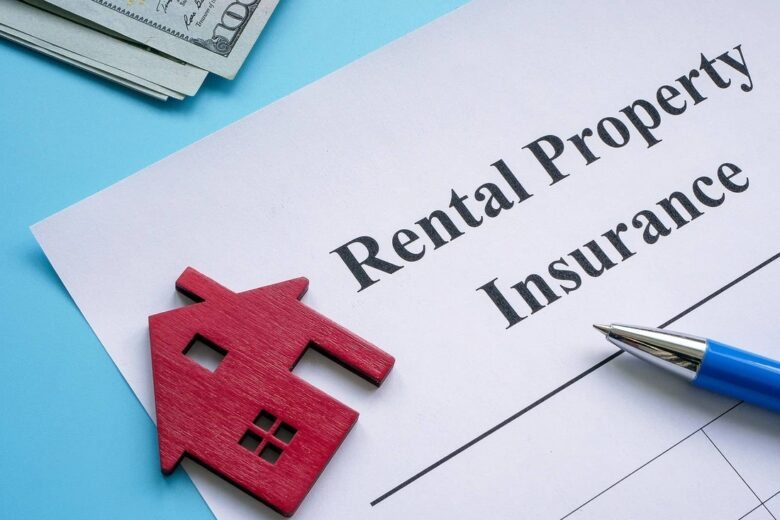Renting a house or apartment is more than just paying rent and utility bills. It should also provide protection against the unexpected and protect your personal belongings. This coverage is mainly provided by rental insurance, also known as renter’s insurance. In this article, we’ll explore the many benefits of renter’s insurance so you can understand why it’s a smart decision for renters.
Renters Insurance: What Is It?
A special type of insurance policy made specifically for renters is called rental insurance. Unlike homeowners insurance, which protects the structural integrity of the home, rental insurance focuses on protecting the tenant’s personal belongings and legal liability within the rental property. This insurance usually covers personal property, liability and additional living expenses in the event of a temporary relocation.
Benefits of Renters Insurance:
1. Protection of Personal Property
Rental insurance provides coverage for your personal belongings, which is one of the most important benefits. Imagine coming home to find your belongings damaged by a fire or someone breaking into your apartment. Without rental insurance, these things can be very expensive to replace. However, if you have rental insurance, your insurance company will reimburse you for the cost of replacing or repairing your property, up to the coverage amount stated in your policy. Renters insurance covers many personal belongings, such as jewelry, clothing, trinkets and furniture. Even items you take with you while traveling or driving are covered. This coverage significantly helps you receive financial compensation for unexpected losses caused by theft, vandalism, fire, or other covered perils.
2. Liability Insurance
Another important part of rental insurance is liability insurance. If someone is injured in a home you rent, you may be responsible for that person’s medical bills, legal costs, and any settlement money you receive from the lawsuit. Rental insurance provides liability coverage to protect you from these potential monetary liabilities. For example, if a guest trips and falls in your apartment and chooses to sue you, your rental insurance may cover medical bills and lost income, up to the liability limits stated in your policy. This coverage helps prevent the unexpected from depleting your savings, assets and future income.
3. Additional Living Expenses (ALE)
Rental insurance can provide additional living expenses (ALE) if a covered event, such as a fire or natural disaster, makes your rental property uninhabitable. These costs cover the price of a short stay, including hotel bills, rent and even excess food costs. While your home is being repaired or renovated, this coverage ensures that you and your family have a place to stay and can continue to live comfortably. Typically, a percentage of your total personal property coverage determines the ALE coverage limits. To ensure you make informed decisions about temporary housing and other expenses during your move, it is important to research your policy and understand the precise limits and conditions of ALE coverage.
4. Premium Prices are Reasonable
The price of rental insurance is one of its best features. Rental insurance premiums are relatively inexpensive compared to other policies, including homeowners or auto insurance. Your location, the coverage you choose, your deductible, and your insurance company all affect the cost of rental insurance. Many insurance companies will give you discounts and competitive rates if you combine rental insurance with an additional policy, such as car insurance. To emphasize the value and affordability of renter’s insurance, some landlords may even include a requirement to purchase renter’s insurance in the lease.
5. Mental Peace
The peace of mind that renters insurance provides is perhaps the biggest benefit. Renting a house or apartment can be difficult, especially when you consider all the possible dangers and liabilities. Renting can be much less stressful when you know that your personal belongings are insured and that you have liability coverage in the event of an accident or injury. With renters insurance, you can stop worrying about the financial impact of the unexpected so you can focus on living a fulfilling life and improving your community. Rental insurance ensures that you get the help and financial protection you need in the event of emergencies such as burglary, kitchen firesor gas accidents.
6. Personal Injury Insurance
Certain rental policies may also cover bodily injuries that occur on your rental property. If a guest or visitor is injured at your hotel, this coverage can help pay for medical expenses. Accidents that happen in your home, such as slips and falls, are also covered. Bodily injury insurance provides you with financial security against potential liability claims and medical bills resulting from an accident at your rental property.
Conclusion:
All in all, renters insurance offers a range of benefits that can protect you emotionally and financially while you are a renter. Renters insurance is a smart investment because it protects your personal belongings and provides liability coverage, additional living expenses, and peace of mind. While it may seem like an additional investment, the safety and protection it provides far outweighs the cost.
Before you rent a home, take some time to learn about your insurance options and choose the plan that best suits your needs and price range. Explore different alternatives to tailor your policy to your risk tolerance and lifestyle, including deductibles, coverage limits and other options. If you choose renter’s insurance, you can rent with peace of mind, knowing that you are protected against unexpected situations and hardships.
FAQs:
1. How much does rental insurance cost?
Many variables, including your location, the coverage you choose, your deductible, and your insurance company, all affect the price of rental insurance. Most renters find rental insurance to be a reasonable option, with basic coverage typically costing $10 to $30 per month.
2. What does the rental insurance cover include?
Liability coverage in your rental insurance policy can provide you with financial protection if someone is injured on your rental property and you are found liable. It typically pays up to the limits of medical bills, legal costs, and damages specified in your policy.
3. Does the rental insurance cover natural disasters?
Most standard rental insurance policies cover common risks such as theft, vandalism and fire. Depending on your region and your insurance company, coverage for natural disasters such as earthquakes, floods, hurricanes or tornadoes may require additional add-ons or endorsements.
4. Can I combine my rental insurance with other plans?
Yes, many insurance companies will give you a discount if you combine rental insurance with other products, such as cars or umbrellas. Combining policies can save you money on premium costs, while ensuring comprehensive coverage for all aspects of your life.
5. Is there a deductible for rental insurance?
Yes, rental insurance policies usually include a deductible (the amount you must pay out-of-pocket before coverage kicks in). In general, lower monthly premiums are associated with a higher deductible, while higher monthly prices are associated with lower out-of-pocket costs in the event of a claim with a lower deductible.



